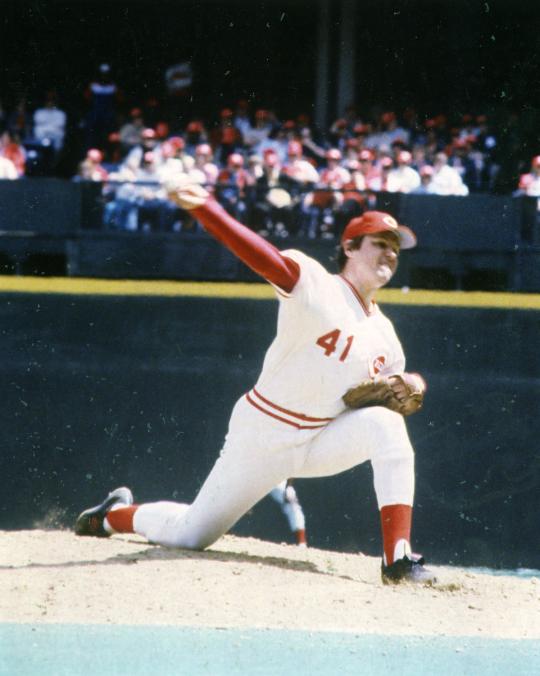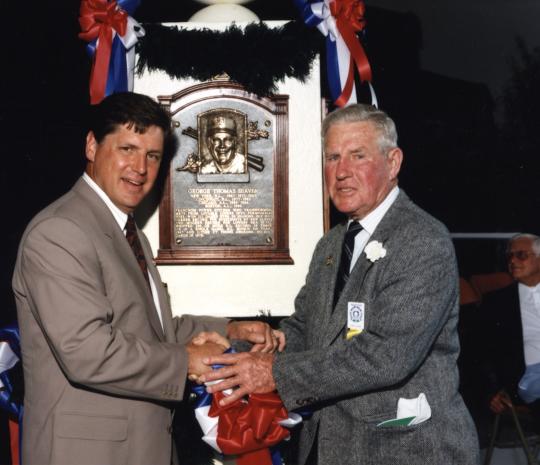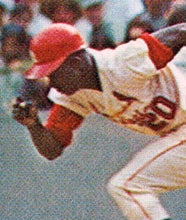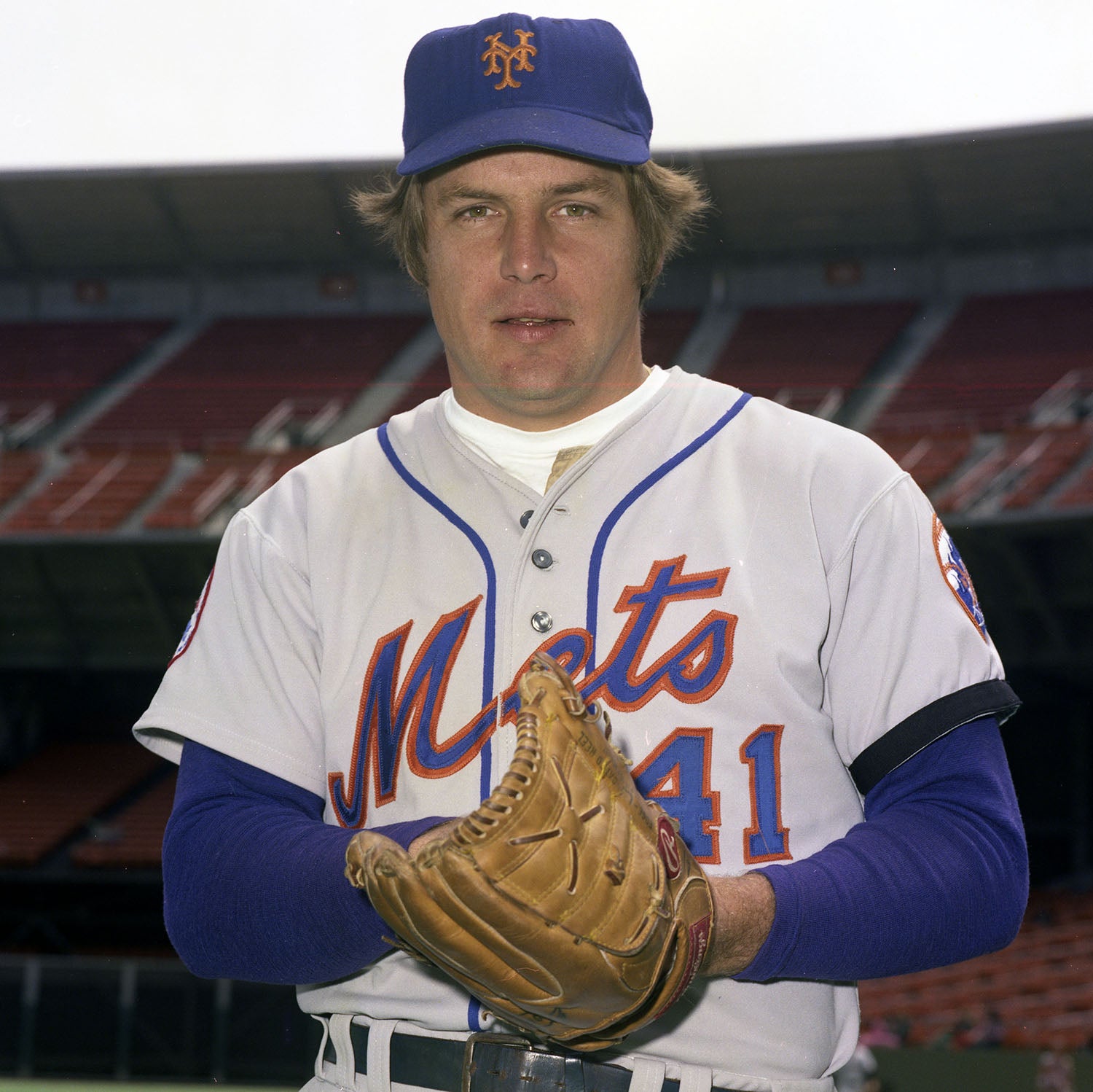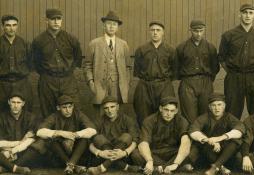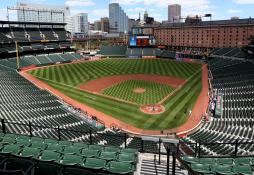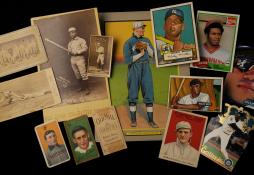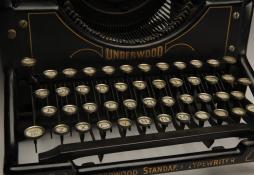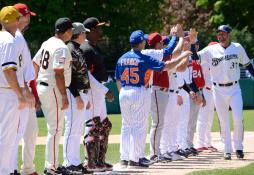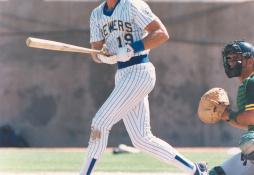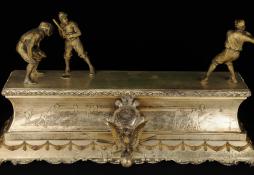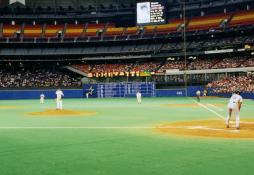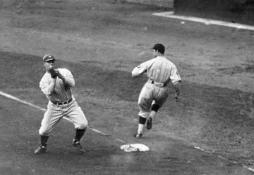- Home
- Our Stories
- Tom Seaver gets his no-hitter
Tom Seaver gets his no-hitter
He had already accomplished just about everything a pitcher can in the major leagues, putting him well on his way to Cooperstown.
A no-hitter, however, always seemed to elude Tom Seaver. But in 1978, the stars aligned for Tom Terrific.
Seaver, already the owner of three Cy Young Awards, five strikeout titles and a World Series championship, blanked the St. Louis Cardinals 4-0 on June 16, 1978, on no hits. Only three Cardinals’ batters reached base – all on walks. Two came in the second inning, when Seaver pitched out of a first-and-third jam.
But Seaver was perfect the next six innings, retiring 18 St. Louis batters in a row from the third through the eighth. Jerry Mumphrey walked to lead off the ninth, but Seaver quickly set down Lou Brock, Garry Templeton and George Hendrick to end the game.
For Seaver, it was no-hitter redemption following several near-misses, including the infamous July 9, 1969, game where the Cubs’ Jimmy Qualls broke up Seaver’s perfect game after 25 outs.
“My wife, Nancy, came on the field after that game in 1969 and said: ‘You lost your perfect game,’” Seaver said. “But I said: ‘Hey, I just threw a one-hitter and we won the game 4-0.
“I think I had better stuff in the one-hitter than in the no-hitter.”
Still, Seaver’s performance against the Cardinals that night at Riverfront Stadium was stunningly efficient. He struck out just three batters, but retired the side in order in seven of the nine innings. He recorded 15 ground-ball outs and nine fly outs to go along with his three strikeouts, and the Reds’ only error came when catcher Don Werner was charged with a bad throw on Keith Hernandez’s steal of second base in the second inning.
But Werner redeemed himself by singling in the fifth inning and eventually scoring with Cesar Geronimo on Pete Rose’s double – giving Seaver the only runs he would need.
The victory marked the 211th of Seaver’s big league career – leaving an amazing 100 still to come. He retired following the 1986 season, and in 1992 he was elected to the Hall of Fame with 98.84 percent of the Baseball Writers’ Association of America vote.
Craig Muder is the director of communications for the National Baseball Hall of Fame and Museum
Support the Hall of Fame
Mentioned Hall of Famers
Related Stories
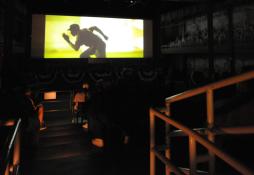
'Fastball' Headlines Tenth Annual Baseball Film Festival
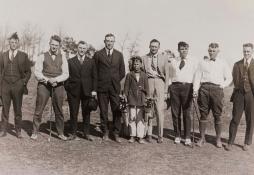
Eight on the Links
Hall of Fame Legends Boggs, Gossage, Fingers, Marichal, Niekro and Smith Headed to Cooperstown for Classic Weekend, May 26-28
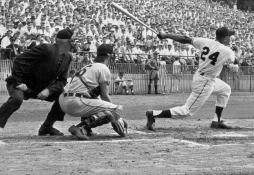
1956 Hall of Fame Game
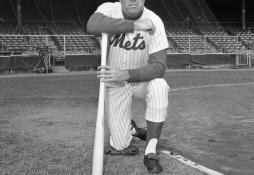
Dodgers sell Snider to Mets
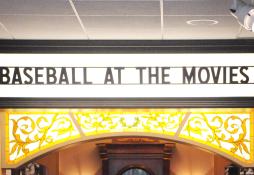
Film Fest a hit for fans, filmmakers
Treasures from Cooperstown Coming to Capital Region for Tri-City ValleyCats Game on Wednesday
01.01.2023
Spaceman Headlines 11th Annual Baseball Hall of Fame Film Festival Sept. 23-25 in Cooperstown
01.01.2023

